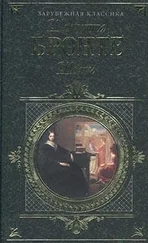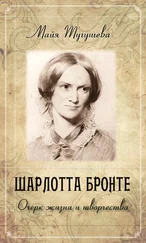Шарлотта Бронте - The Professor
Здесь есть возможность читать онлайн «Шарлотта Бронте - The Professor» — ознакомительный отрывок электронной книги совершенно бесплатно, а после прочтения отрывка купить полную версию. В некоторых случаях можно слушать аудио, скачать через торрент в формате fb2 и присутствует краткое содержание. Год выпуска: 2014, Издательство: epubBooks Classics, Жанр: Классическая проза, на английском языке. Описание произведения, (предисловие) а так же отзывы посетителей доступны на портале библиотеки ЛибКат.
- Название:The Professor
- Автор:
- Издательство:epubBooks Classics
- Жанр:
- Год:2014
- ISBN:нет данных
- Рейтинг книги:3 / 5. Голосов: 1
-
Избранное:Добавить в избранное
- Отзывы:
-
Ваша оценка:
- 60
- 1
- 2
- 3
- 4
- 5
The Professor: краткое содержание, описание и аннотация
Предлагаем к чтению аннотацию, описание, краткое содержание или предисловие (зависит от того, что написал сам автор книги «The Professor»). Если вы не нашли необходимую информацию о книге — напишите в комментариях, мы постараемся отыскать её.
The Professor — читать онлайн ознакомительный отрывок
Ниже представлен текст книги, разбитый по страницам. Система сохранения места последней прочитанной страницы, позволяет с удобством читать онлайн бесплатно книгу «The Professor», без необходимости каждый раз заново искать на чём Вы остановились. Поставьте закладку, и сможете в любой момент перейти на страницу, на которой закончили чтение.
Интервал:
Закладка:
I sat down; I propped my forehead on both my hands; I thought and thought an hour—two hours; vainly. I seemed like one sealed in a subterranean vault, who gazes at utter blackness; at blackness ensured by yard–thick stone walls around, and by piles of building above, expecting light to penetrate through granite, and through cement firm as granite. But there are chinks, or there may be chinks, in the best adjusted masonry; there was a chink in my cavernous cell; for, eventually, I saw, or seemed to see, a ray—pallid, indeed, and cold, and doubtful, but still a ray, for it showed that narrow path which conscience had promised after two, three hours' torturing research in brain and memory, I disinterred certain remains of circumstances, and conceived a hope that by putting them together an expedient might be framed, and a resource discovered. The circumstances were briefly these:
Some three months ago M. Pelet had, on the occasion of his fete, given the boys a treat, which treat consisted in a party of pleasure to a certain place of public resort in the outskirts of Brussels, of which I do not at this moment remember the name, but near it were several of those lakelets called etangs; and there was one etang, larger than the rest, where on holidays people were accustomed to amuse themselves by rowing round it in little boats. The boys having eaten an unlimited quantity of "gaufres," and drank several bottles of Louvain beer, amid the shades of a garden made and provided for such crams, petitioned the director for leave to take a row on the etang. Half a dozen of the eldest succeeded in obtaining leave, and I was commissioned to accompany them as surveillant. Among the half dozen happened to be a certain Jean Baptiste Vandenhuten, a most ponderous young Flamand, not tall, but even now, at the early age of sixteen, possessing a breadth and depth of personal development truly national. It chanced that Jean was the first lad to step into the boat; he stumbled, rolled to one side, the boat revolted at his weight and capsized. Vandenhuten sank like lead, rose, sank again. My coat and waistcoat were off in an instant; I had not been brought up at Eton and boated and bathed and swam there ten long years for nothing; it was a natural and easy act for me to leap to the rescue. The lads and the boatmen yelled; they thought there would be two deaths by drowning instead of one; but as Jean rose the third time, I clutched him by one leg and the collar, and in three minutes more both he and I were safe landed. To speak heaven's truth, my merit in the action was small indeed, for I had run no risk, and subsequently did not even catch cold from the wetting; but when M. and Madame Vandenhuten, of whom Jean Baptiste was the sole hope, came to hear of the exploit, they seemed to think I had evinced a bravery and devotion which no thanks could sufficiently repay. Madame, in particular, was "certain I must have dearly loved their sweet son, or I would not thus have hazarded my own life to save his." Monsieur, an honest–looking, though phlegmatic man, said very little, but he would not suffer me to leave the room, till I had promised that in case I ever stood in need of help I would, by applying to him, give him a chance of discharging the obligation under which he affirmed I had laid him. These words, then, were my glimmer of light; it was here I found my sole outlet; and in truth, though the cold light roused, it did not cheer me; nor did the outlet seem such as I should like to pass through. Right I had none to M. Vandenhuten's good offices; it was not on the ground of merit I could apply to him; no, I must stand on that of necessity: I had no work; I wanted work; my best chance of obtaining it lay in securing his recommendation. This I knew could be had by asking for it; not to ask, because the request revolted my pride and contradicted my habits, would, I felt, be an indulgence of false and indolent fastidiousness. I might repent the omission all my life; I would not then be guilty of it.
That evening I went to M. Vandenhuten's; but I had bent the bow and adjusted the shaft in vain; the string broke. I rang the bell at the great door (it was a large, handsome house in an expensive part of the town); a manservant opened; I asked for M. Vandenhuten; M. Vandenhuten and family were all out of town—gone to Ostend—did not know when they would be back. I left my card, and retraced my steps.
Chapter XXII
A WEEK is gone; LE JOUR DES NOCES arrived; the marriage was solemnized at St. Jacques; Mdlle. Zoraide became Madame Pelet, NEE Reuter; and, in about an hour after this transformation, "the happy pair," as newspapers phrase it, were on their way to Paris; where, according to previous arrangement, the honeymoon was to be spent. The next day I quitted the pensionnat. Myself and my chattels (some books and clothes) were soon transferred to a modest lodging I had hired in a street not far off. In half an hour my clothes were arranged in a commode, my books on a shelf, and the "flitting" was effected. I should not have been unhappy that day had not one pang tortured me—a longing to go to the Rue Notre Dame aux Neiges, resisted, yet irritated by an inward resolve to avoid that street till such time as the mist of doubt should clear from my prospects.
It was a sweet September evening—very mild, very still; I had nothing to do; at that hour I knew Frances would be equally released from occupation; I thought she might possibly be wishing for her master, I knew I wished for my pupil. Imagination began with her low whispers, infusing into my soul the soft tale of pleasures that might be.
"You will find her reading or writing," said she; "you can take your seat at her side; you need not startle her peace by undue excitement; you need not embarrass her manner by unusual action or language. Be as you always are; look over what she has written; listen while she reads; chide her, or quietly approve; you know the effect of either system; you know her smile when pleased, you know the play of her looks when roused; you have the secret of awakening what expression you will, and you can choose amongst that pleasant variety. With you she will sit silent as long as it suits you to talk alone; you can hold her under a potent spell: intelligent as she is, eloquent as she can be, you can seal her lips, and veil her bright countenance with diffidence; yet, you know, she is not all monotonous mildness; you have seen, with a sort of strange pleasure, revolt, scorn, austerity, bitterness, lay energetic claim to a place in her feelings and physiognomy; you know that few could rule her as you do; you know she might break, but never bend under the hand of Tyranny and Injustice, but Reason and Affection can guide her by a sign. Try their influence now. Go—they are not passions; you may handle them safely."
"I will NOT go was my answer to the sweet temptress. A man is master of himself to a certain point, but not beyond it. Could I seek Frances to–night, could I sit with her alone in a quiet room, and address her only in the language of Reason and Affection?"
"No," was the brief, fervent reply of that Love which had conquered and now controlled me.
Time seemed to stagnate; the sun would not go down; my watch ticked, but I thought the hands were paralyzed.
"What a hot evening!" I cried, throwing open the lattice; for, indeed, I had seldom felt so feverish. Hearing a step ascending the common stair, I wondered whether the "locataire," now mounting to his apartments, were as unsettled in mind and condition as I was, or whether he lived in the calm of certain resources, and in the freedom of unfettered feelings. What! was he coming in person to solve the problem hardly proposed in inaudible thought? He had actually knocked at the door—at MY door; a smart, prompt rap; and, almost before I could invite him in, he was over the threshold, and had closed the door behind him.
Читать дальшеИнтервал:
Закладка:
Похожие книги на «The Professor»
Представляем Вашему вниманию похожие книги на «The Professor» списком для выбора. Мы отобрали схожую по названию и смыслу литературу в надежде предоставить читателям больше вариантов отыскать новые, интересные, ещё непрочитанные произведения.
Обсуждение, отзывы о книге «The Professor» и просто собственные мнения читателей. Оставьте ваши комментарии, напишите, что Вы думаете о произведении, его смысле или главных героях. Укажите что конкретно понравилось, а что нет, и почему Вы так считаете.











